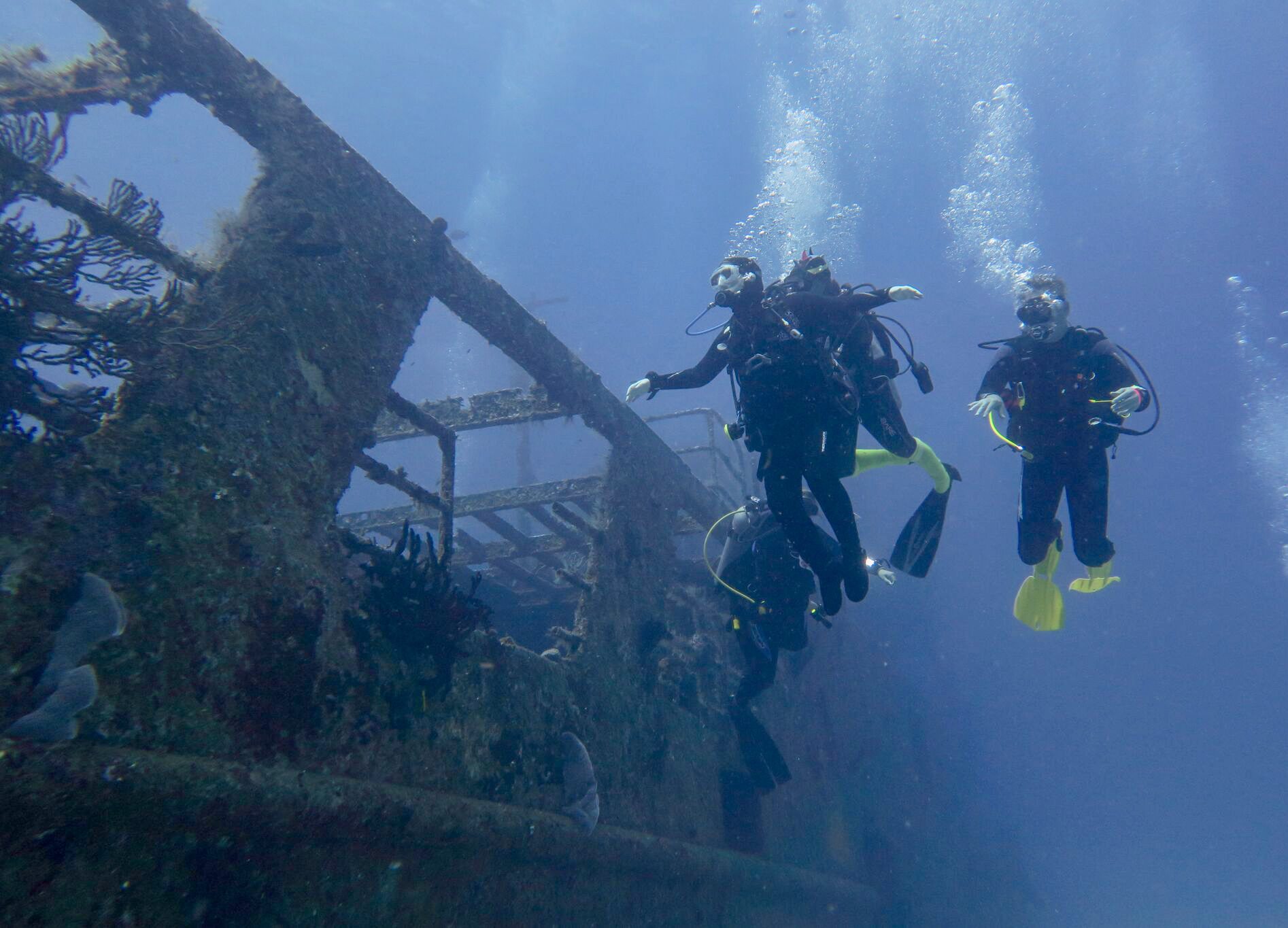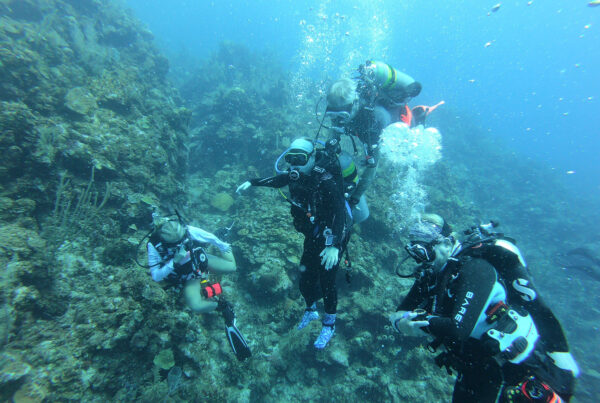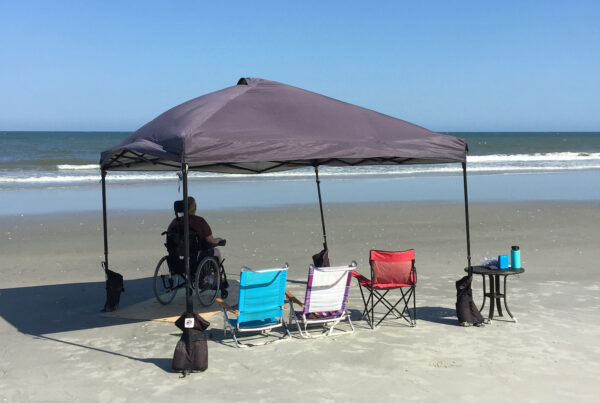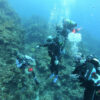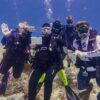On the last day of diving on my annual adaptive scuba diving trip in Cozumel Mexico this past June, our five-person group found ourselves in trouble. 60 feet down and moving at a fast-paced clip with an unrelenting and turbulent current, it was time to ascend as we were running out of air. Because of the current, we had drifted almost 5 miles off course and were not only lost but also 60 feet below a very active boating channel with speeding diving boats just overhead. We could hear and see the speeding boats above us, but we had no choice but to ascend hoping a boat would not mistakenly clobber us as we broke the surface of the ocean. Feeling the hot sun beating down on our faces, we were finally above water, able to spit out our salty regulator hoses in order to communicate about our predicament.
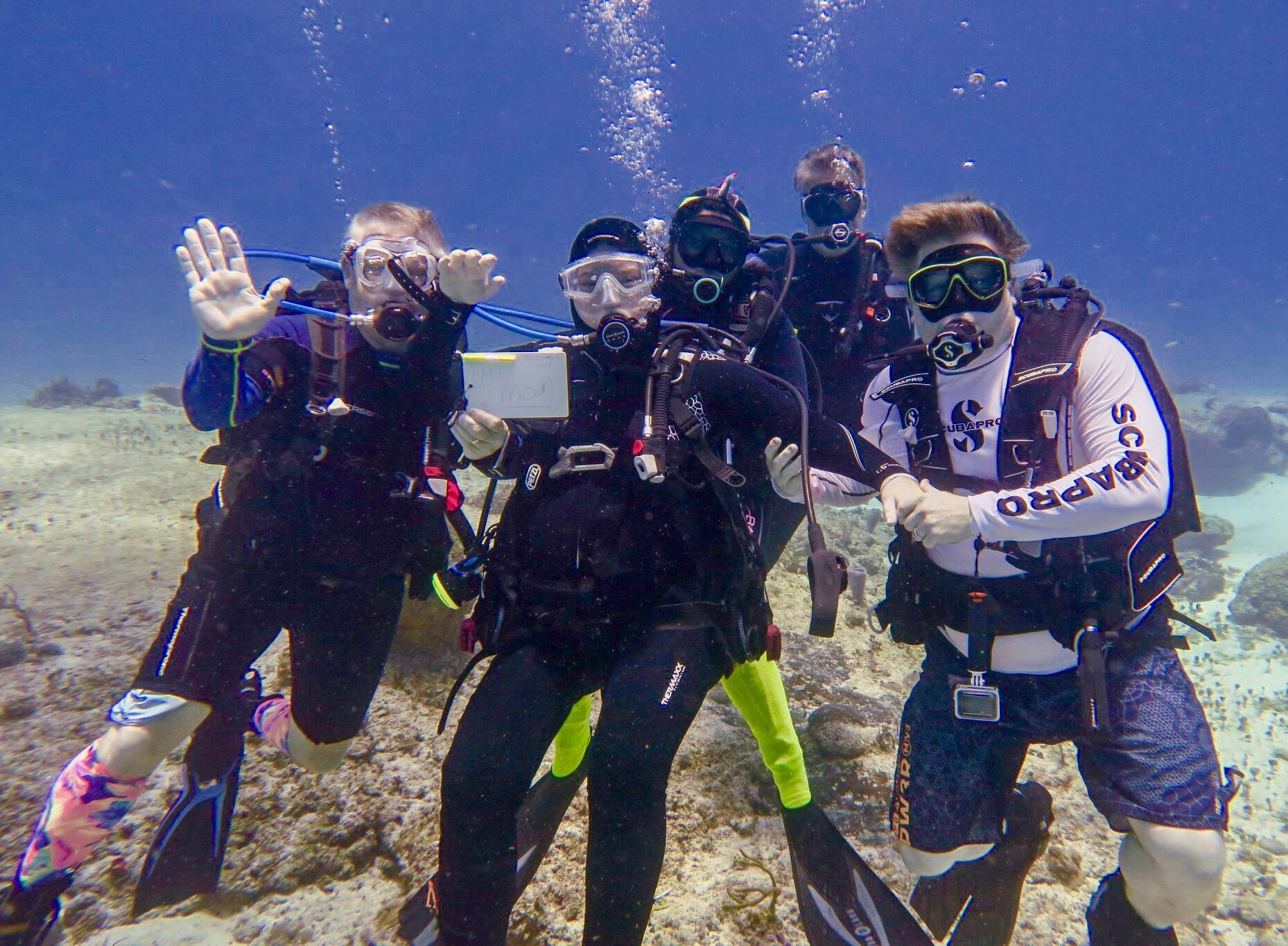
Yes, we were in fact in the boating channel and more surprisingly 400 yards away from the base of a giant, skyscraper Carnival cruise liner in port. It was a sight I will never forget, almost like seeing a modern version of the Titanic, but instead of being on the ship sipping cocktails looking over the veranda, I was in the ocean slowly drifting towards the ship’ s magnanimous base. Immediate thoughts running through my mind were the hope the cruise liner’ s gigantic turbines would not pull us closer to the vessel, or this particular morning was not trash day. To make matters even more interesting, our diving boat was nowhere in sight and we looked like little sand fleas bobbing up and down in a vast ocean with only a small diving flag to alert others of our presence. This was… dangerous.
Gathering our small group together in safety and drifting ourselves out of the active channel, my brother Tracy instinctively and immediately performed the scuba diving “in distress” signal waving his hands overhead. Within seconds, a passerby dive boat sped our way, saving the day and our lives, alerting our dive boat of our location preventing us from a potential boat accident or becoming Carnival cruise liner chum. Shark week is coming up and I would prefer not to be a highlighted story.
And so now I understand why, with stories like these, I am frequently asked how I could possibly enjoy scuba diving as a complete quadriplegic. There is a real fear of underwater claustrophobia or unexpected panic attacks about running out of air, equipment malfunctions or coming upon a large, unexpected great white shark. Certainly, in my situation, I cannot use my arms to clear my ear pressure or deflood a salty mask or use my legs to propel myself with my fins to stay in control of my underwater positioning and neutral buoyancy. I am 100% dependent on the assistance of my 2 to 3 dive buddies controlling my entire underwater environment including clearing ear pressures, helping me breathe and propelling me along our dive course. How and why would I want to put myself in such scary and uncontrollable situations? The answer is clear and simple: to be completely and utterly “in the moment” so that I might find pure peace, quietude and soulful stillness.
For me, breathing underwater is a beautiful moment of pure presence. Presence in which there are no other thoughts about the past or future. The chair is not on me; the chair is not even a factor. The injury is not a factor. I am floating and free, diving aside my two brothers and dive team. I am just like them and they are just like me, and just for a short moment in time, I can forget about life for a while. There are droves of the most beautifully colored tropical fish you have ever seen, some the size of a VW bus, munching on the livened coral that is diverse and beautifully arranged in a natural and organic way underwater proving that mother nature is truly a genius. The ocean is vivaciously alive and we are all experiencing it together.
Yogis aspire to find this one sparkling, soul clenching moment of pure human presence through hours and hours of yoga and deep meditation. I find it in scuba diving by listening to my breath. When you are underwater diving, all you hear is your breath as you take slow deep inhales and exhales in and out of your regulator hose. It is melodic, calming and centering. By listening to the breath, the mind’ s rampant clutter of thought relaxes, focusing on nothing providing an expansion of space to be “in the moment”.
This is finding the still point; this is the nectar of life. And this is why I scuba dive.


